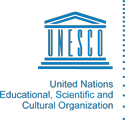NACA, 2014. 32 p.
Organizations:
Nigeria. National Agency for the Control of AIDS, NACA
Description:
The National Guidelines for HIV/AIDS Care and Support offers general recommendations for the Care and Support of persons living with HIV/AIDS, persons affected by HIV/AIDS and service providers. It provides a general overview of the status of HIV/AIDS Care and Support in Nigeria with emphasis on progress made thus far. The document has six chapters that address the key components of HIV/AIDS Care and Support thus providing an implementable framework for the effective delivery of HIV/AIDS Care and Support services. The first chapter outlines the current situation of Care and Support services in Nigeria. It outlines the achievements and scope of these guidelines. Chapter 2 of the document presents the conceptual framework for HIV/AIDS Care and Support which it defines as 'the holistic and comprehensive client-focused care provided by a multidisciplinary team at all stages of the HIV/AIDS infection’. It outlines the basic principles that should guide the implementation of Care and Support services, eligibility criteria, providers of service, outlets for Care and Support services and the fundamental needs of the PLHIV. Chapter 3 of the document deals with delivery of Care and Support services, and clearly describes in details the component services of a comprehensive package of Care and Support services. It outlines services that should be on offer at health facilities and those that ought to be provided in the community. HIV/AIDS Care and Support services are divided into three main components: - Medical, Psychological and Socioeconomic. In addition, this chapter defines the minimum package of Care and Support services that should be offered to the PLHIV in the facility and in the community. Chapter 4 defines Positive Health Dignity and Prevention and prescribes its minimum package of interventions for PLHIV. It provides a set of interventions for health promotion, access to treatment, sexual and reproductive health, prevention of transmission of HIV/AIDS and STIs, protection of human rights including stigma and discrimination reduction, gender equality, socioeconomic support and empowerment of PLHIV. Chapter 5 provides recommendations for the Care and Support of special populations, which include women living with, and affected by HIV/AIDS, PLHIV living in conflict zones, and children rendered vulnerable by HIV/AIDS. It also explains why these individuals require special attention and highlights special interventions necessary to reduce the burden of HIV/AIDS on them. Chapter 6 describes policy and programming for HIV/AIDS Care and Support and focuses on governance and administration of the implementation of Care and Support. It outlines the specific roles of key stakeholders including government, NGOs, and service providers in ensuring compliance with guidelines, provision of services, and effective monitoring and evaluation. Chapter 7 speaks to the nutrition of the person living with HIV/AIDS and aptly describes the relationship between nutrition and HIV/AIDS. It speaks to the goals of nutrition counseling and recommends nutrient requirements for the PLHIV Chapter 8 addresses monitoring and evaluation of the entire care and support programme with the overall purpose of measuring programme results at all levels and guide towards achieving goals and strategic objectives.
Themes:
Populations:
Resource types:
Keywords:
Languages:
Record created by:
IIEP


